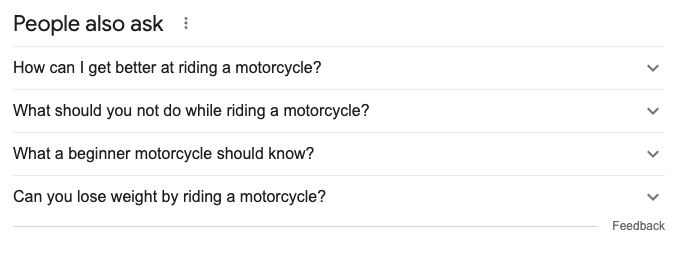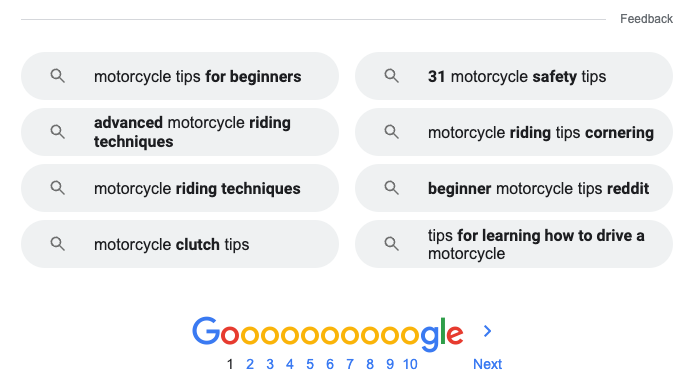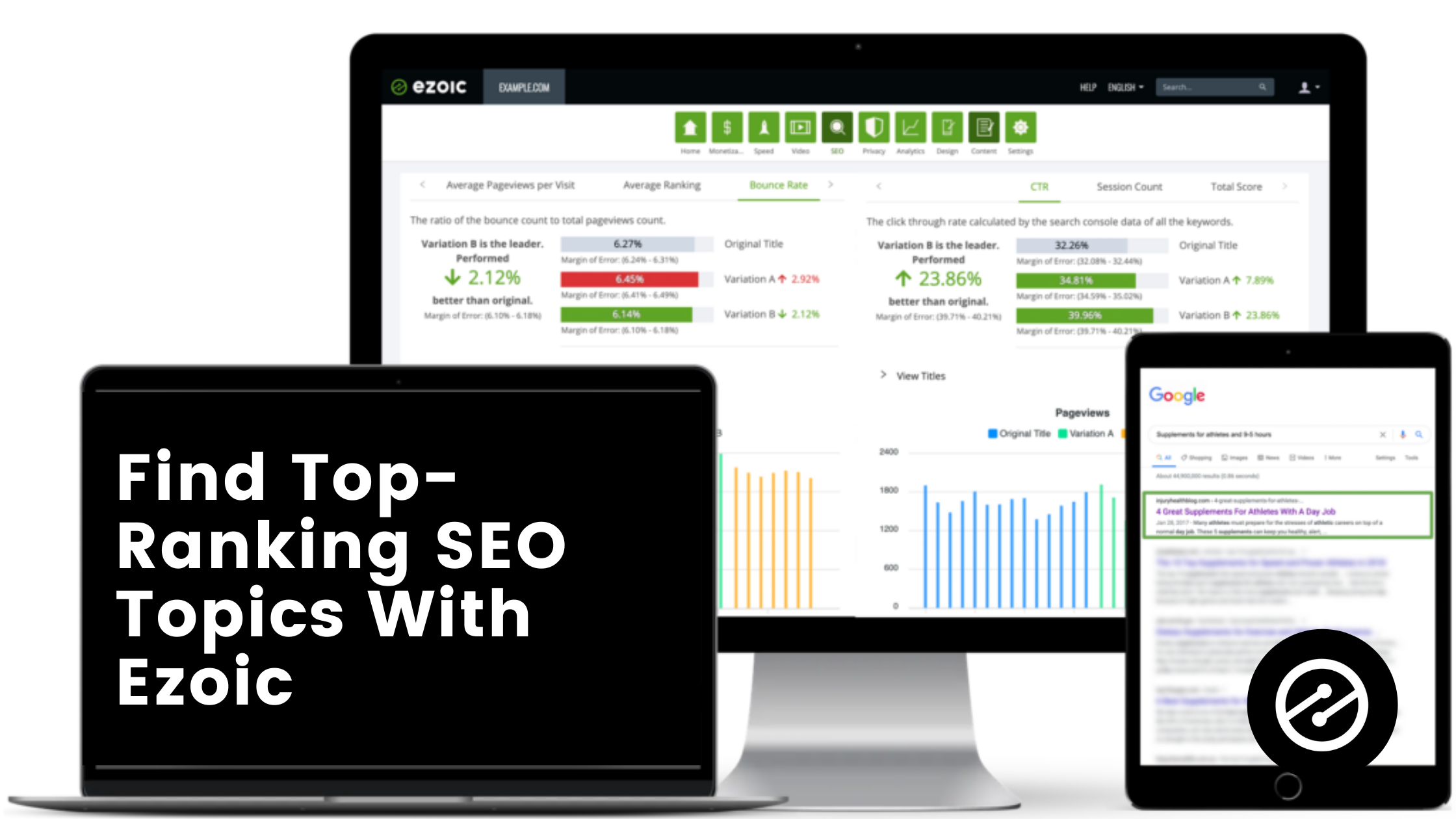Google boasts more than 90% of all search engine queries. They’re extremely good at showing their users great content at lightning speeds. This wasn’t always the case, though — even as recent as 2011, black hat SEO marketers were still successfully manipulating Google and abusing SEO topics through content farms and rampant plagiarism.
But in the past decade, it’s become virtually impossible to “fool” Google — if your content doesn’t truly help people or meet their needs, it will eventually fall to the backend of Google search results. All the SEO techniques in the world can’t save outdated, unhelpful, or low-quality content. As British advertising tycoon David Ogilvy famously remarked: “Great marketing only makes a bad product fail faster.”
Still, great websites in any niche almost always have good SEO and SEM to support their high-quality content from the backend. Fortunately, Ezoic has one of the best SEO tools on the market to help you lay a groundwork for high-quality SEO, and publishers like you can start using it today.
What is Tag Tester, Why Should I Care About It?
As a publisher, we know you’re incredibly busy — you have to be careful about what new tools you choose to use, because they take time to learn, test, and master.
Fortunately, Ezoic’s Tag Tester tool is a no-brainer for any publisher to use. It’s one of the fastest, thorough, and most reliable SEO analytics tools on the market, and it’s exclusively available to Ezoic publishers.
Figuring out SEO has always been difficult because the “rules” are constantly changing — Google has been obsessively guarding the secrets of their algorithm as if it’s the secret recipe for Coca-Cola. No one but a handful of people in the whole world truly know how SEO works, and right when you think you know, it changes.
If you’ve been overwhelmed and confused by SEO, Ezoic’s Tag Tester is going to be a godsend. It’s an SEO tool built on artificial intelligence that allows publishers to optimize different page titles for URLs on your website. Essentially, Tag Tester makes it easy to test which titles get indexed in search engines, and helps attract more traffic to your content, increases click-through rate, and lowers your bounce rate.
As you may know, search engines like Google rank page titles with relevant content far higher than those with irrelevant/outdated/low-quality content. Simply adjusting your page titles could lead to a significant boost in search engine rankings, especially if it’s been a while since you last did it.
How to Set Up Tag Tester and Start Using It ASAP
To access Tag Tester, your site must be fully integrated with Ezoic (if you haven’t done this yet, just go to your Dashboard > Settings > Site Integration). You also need to authorize Google Search Console Authorization in your Ezoic dashboard (which can be done by going to your Dashboard > SEO > Google Search Console Authorization).
Once everything is integrated and authorized, you’re able to use the Tag Tester tool. Go to Dashboard > SEO, then click “New Test Group.” Give your test group a name so you can label your tests.
Next, you can select any number of pages on your website (or just paste in the URL of a specific page). Then, click “Add” to run a test for those pages.
Then, we can start testing different titles you have in mind for those pages, and Ezoic will tell you which page titles will perform better from an SEO perspective. Enter a title to test, then place “Save and Start” to start the test.
Please be aware, these tests can take several days to complete — the Tag Tester tool is literally comparing the page titles with countless other page titles across countless other websites on the internet, determining which titles work best. But once the Tag Tester identifies the best page titles for you, you can enjoy the benefits of better SEO on your website for a long time.
After the test completes, you can see a full breakdown the test, including:
- Best Scoring Title
- Average Pageviews per Visit
- Average Ranking
- Bounce Rate
- Click-Through Rate
Testing several different tag titles will ultimately help you see which ones perform the best in SEO. This means you can reach a wider audience of true fans, helping you get more traffic and earn more revenue.
Here’s a simple how-to video on Getting Started with Ezoic’s Tag Tester for further support.
How to Find the Top-Ranking SEO Topics For Your Site
There are a lot of different SEO traits that websites could focus on — domain authority, page rank, keywords, pageviews, etc. And it can make your head spin.
But one strategy almost every SEO blog and expert agrees on is that focusing on SEO topics is a wise strategy for any publisher. Topics are one of the largest and most encompassing SEO traits you can utilize for your website, and there are plenty of simple, easy research methods you can use today to find high-ranking topics.
In addition to using Ezoic’s Tag Tester tool, there are a few simple SEO topic strategies to keep in mind. SEO Optimizers recommend using some little-known tricks on Google, including the “Google Question Box” and the “Alphabet Soup Method.”
For the Google Question Box, simple enter a generic, short phrase around your topic — if you run a website about taking care of dogs, you could type in “dog health.” If you run a blog for motorcycle enthusiasts, you could type in “motorcycle tips.”
Then, see what Google recommends in the questions box of your search results. This is under the “People Also Ask” section, where Google conveniently displays more specific search engine terms people have typed in regarding your generic search. Those are high-ranking SEO topics.


Next, the Alphabet Soup method. Type in that generic phrase again, followed by the letter “A.” Google will auto-populate the search bar with the most popular terms people have searched for starting with that letter. Do the same for the whole alphabet, from A to Z. For instance, if you run a fitness training website for moms, type in something generic like “mom fitness” followed by the letter “A” and see what Google populates in the search bar:
These are more popular terms that many people have searched for, giving you more ideas for high-ranking SEO topics. You might be inspired to write content about “fitness mom and baby” topics or find some relevant “mom memes about fitness,” both of which are commonly searched-for phrases in Google.
There are countless ways to boost your site’s SEO and find new, trending topics to search for. But instead of focusing on “gaming Google” and trying to stay on top of the most popular topics each month, focus on consistently producing quality content instead.
Don’t try to beat Google and rely on fancy SEO tactics to get views. While SEO strategies are extremely important for publishers, they only work if you have high-quality natural content that actually helps people first.


